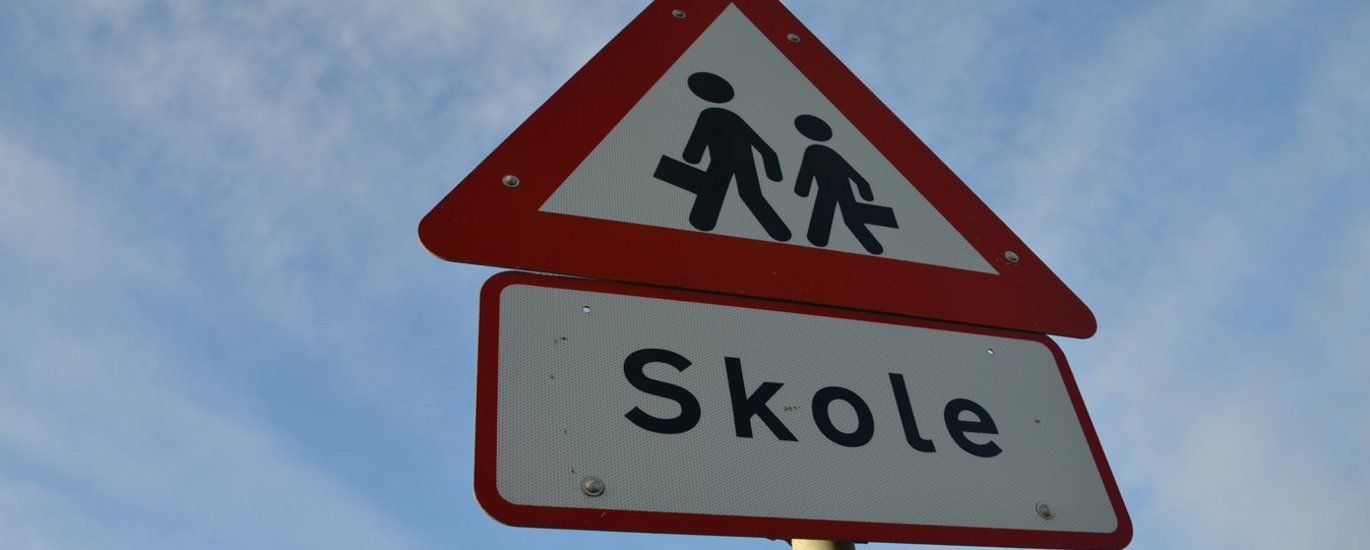Childhood epilepsy linked to poor academic performance
Researchers from Aarhus BSS at Aarhus University stress that children with epilepsy should receive far greater attention and support in school following a new study that shows that even children with uncomplicated epilepsy perform significantly worse in school than their peers without epilepsy.

The largest study ever conducted on the relationship between epilepsy and children’s schooling has recently been published by the scientific journal Brain. Researchers from the National Centre for Register-based Research, Aarhus BSS at Aarhus University are the main researchers behind the study.
"It is well established that children with very severe forms of epilepsy often have learning disabilities. However, there is a very large group of children with milder forms of epilepsy without any neurologic or intellectual comorbidities and we currently don’t know enough about how their epilepsy affects their schooling," says Julie Werenberg Dreier, senior researcher at the National Centre for Register-based Research, who headed the study.
"So far, the studies conducted have been very small, but in this study, we have the unique opportunity to look at much larger groups of children in Denmark. The study shows that children with epilepsy who are attending primary/lower secondary schools in Denmark perform significantly worse in mathematics and language tests compared to children of the same age without epilepsy. The difference is evident at epilepsy onset and this difference in performance continues throughout their schooling.”
"Overall, our results indicate that there is a great need for increased awareness of the academic challenges faced by children with epilepsy."
Julie Werenberg Dreier, Senior Researcher, The National Center for Register-based Research, Aarhus BSS, Arhus Universitet
Read also: Children with diabetes perform well in school
Up to one per cent of all children have epilepsy
Epilepsy is one of the most common neurological diseases in children. Between 0.5 and 1 per cent of all children have epilepsy. The study is based on 4,659 children with epilepsy and 46,590 children without epilepsy who were born between 1997 and 2009. All the children participated in the Danish National Test Program conducted in public primary and lower secondary schools between 2010 and 2019.
More than 15,000 tests in Danish and mathematics completed by the children with epilepsy were compared to more than 150,000 tests completed by the children in the reference group.
While the children without epilepsy on average scored 56.7 points on the national tests, the average for children with epilepsy was 48.2 points. When adjusted for e.g. differences in parental income and educational level, the difference was minus 6.7 points.
Among the 3,534 children with uncomplicated epilepsy, the adjusted difference was minus 6.0 points, while the adjusted difference between children without epilepsy and children with epilepsy who were in treatment with antiseizure medication at the time of the test ranged between minus 9.3 points and minus 13.1 points. On average, children with epilepsy scored 6.0 points lower than their unaffected siblings.
"It is important that families support their children with epilepsy during schooling and ensure that they receive the support they need."
Jakob Christensen, Chief Physician and Professor, Aarhus University Hspital
Read also: Deferred school entry eases pressure on families
Need for increased focus
"Overall, our results indicate that there is a great need for increased awareness of the academic challenges faced by children with epilepsy, even if the disease is uncomplicated and well-treated, and the child doesn’t show any apparent signs of epilepsy in school," says Julie Werenberg Dreier.
"Being aware of possible difficulties arising in the years following diagnosis and offering appropriate support will ensure the best foundation for these children moving forward in the educational setting.”
Jakob Christensen, senior hospital physician and professor at Aarhus University Hospital, is a co-author of the study and has participated in preparation of the Danish Health Authority's recommendations for cross-sectoral pathways for people with epilepsy.
"It is important that families support their children with epilepsy during schooling and ensure that they receive the support they need. Doctors and nurses should also focus on coordinating initiatives and knowledge-sharing across sectors and on ensuring that they live up to the Danish Health Authority's recommendations on coordinating treatment by healthcare services and the municipal services for children with epilepsy. It is important that a more systematic assessment is made of in children with epilepsy, e.g. neuropsychological tests, when there is a suspicion of underlying cognitive difficulties” says Jakob Christensen.
Facts
We strive to comply with Universities Denmark’s principles for good research communication. For this reason, we provide the following information as a supplement to this article:
| Type of Study | A matched register-based cohort study |
| External partners | Department of Neurology, Aarhus University Hospital; Department of Clinical Epidemiology, Aarhus University Hospital and Aarhus University; Department of Neurology and Department of Genetics, Yale University, New Haven, USA; Department of Neurology, Northwestern University, Chicago, USA |
| External funding | Independent Research Fund Denmark; the Novo Nordisk Foundation; Central Denmark Region's Health Science Research Foundation; The Epilepsy Association (Inge Berthelsens Grant) |
| Conflicts of interest | Dr. Christensen has received personal fees from Eisai AB and UCB Nordic while conducting the study. Dr. Berg has received fees from Biomarin. The other authors have no conflicts of interest. |
| Other | No |
| Link to the scientific article artikel | https://doi.org/10.1093/brain/awad382 |
| Contact | Senior Researcher Julie Werenberg Dreier Mobile phone: +45 25 62 11 78 Email: jwdreier.ncrr@au.dk |